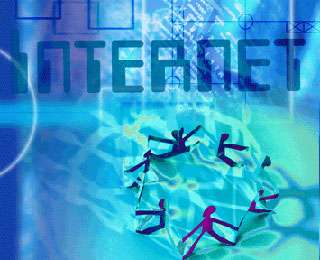October 17, 2014 weblog
Young adults found displaying symptoms of net addiction

In 2012, Allen Frances, MD, professor emeritus and former chair of the department of psychiatry at Duke University, cautioned that "Internet Addiction" could be the next new fad diagnosis, complete with "an exuberant trumpeting by newly minted 'thought leading' researchers and clinicians." So far, he said, the research on Internet "addiction" is "remarkably thin and not very informative." He cautioned that pictures showing the same parts of the brain lighting up during Internet use and drug use should not get viewers too excited, as they "light up non-specifically for any highly valued activity and are not indicative of pathology."
One can find in the history of psychiatry, he said, fad diagnoses that overshoot their target, are misapplied, and spawn new "treatments" often no more than quackery. He said that "Internet addiction" needs to be "less a media darling and more a target of sober research." Nonetheless, excessive use of the Internet is a growing concern among health practitioners. They want to explore to what extent excessive Internet use is addictive behavior. Previous studies, said the BBC, have suggested that Internet addiction operates in a similar way to drug or alcohol addiction and releases the chemical dopamine in the same way. All in all, experts remain divided. Is there such a thing as Internet addiction per se and how serious a condition is it? The American Psychiatric Association's Diagnostic and Statistical Manual of Mental Disorders, an important reference source for psychiatrists, has not yet included Internet addiction as a condition in its own right. While not officially a clinical diagnosis according to the DSM, some researchers would argue that individuals with IAD—yes, it has been given an acronym—show severe emotional, social, and mental dysfunction in daily activities due to their use of technology and the Internet.
Last month, a paper appeared in Addictive Behaviors titled "Internet addiction disorder and problematic use of Google Glass in patient treated at a residential substance abuse treatment program." The patient reported that if he had been prevented from wearing the device while at work, he would become extremely irritable and argumentative. The search for answers clearly continues, with the BBC News reporting on Wednesday that a survey found a "significant" number of young adults who may be suffering from "Internet addiction disorder." A marketing agency, Digital Clarity, conducted the survey. Of 1300 young adults, 16 percent (18- to 25-years-old) showed Internet addiction symptoms.
Signs of possible addiction addressed by the survey included, among other signs, becoming irritable when interrupted during web use; isolation from family and friends due to excessive online activity; and a sense of euphoria when online and panic when offline.
© 2014 Medical Xpress

















